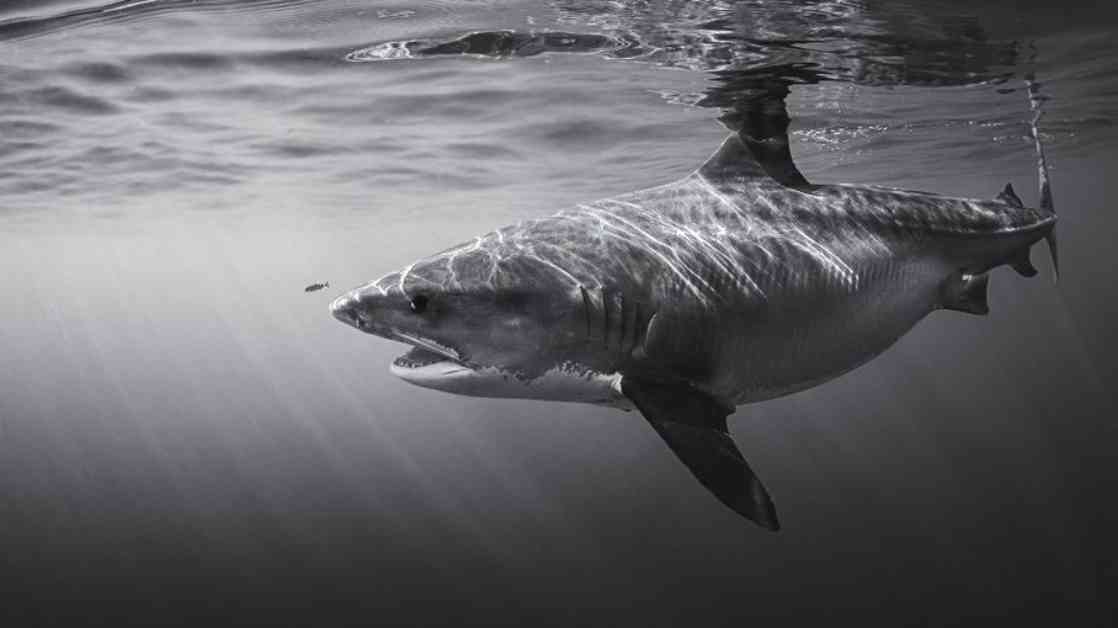Tragedy struck in the middle of the Atlantic Ocean as a German tourist lost her life in a shark attack on Monday, September 17th. The incident occurred approximately 500 km off the coast of the Spanish Canary Islands, as reported by the maritime rescue services to AFP. The 30-year-old woman was bitten on the leg while enjoying a catamaran ride on Monday afternoon. Despite efforts to transport her to the hospital in Las Palmas via helicopter, she tragically succumbed to a cardiac arrest in transit. This type of incident remains uncommon in this area.
Shark attacks have been a topic of concern globally, with an increase in incidents reported in 2023. According to a study released in February by the International Shark Attack File, a database from the University of Florida, there were 69 « unprovoked » shark bites (when a human did not intentionally approach the fish) recorded in 2023, compared to 63 in 2022. These attacks resulted in a total of 10 fatalities, including four in Australia, two in the United States, and one each in the Bahamas, Egypt, Mexico, and France (specifically in New Caledonia).
### Safety Measures and Awareness
In response to the rise in shark attacks globally, authorities and marine experts have been emphasizing the importance of safety measures and public awareness. Education on shark behavior, prevention techniques, and understanding the risks associated with certain activities in the water are key components of promoting safety in aquatic environments.
Marine biologists stress that sharks are not inherently aggressive towards humans and that most encounters result from mistaken identity or curiosity. By educating the public on how to minimize the risk of shark encounters through practices such as avoiding areas where sharks are known to frequent, refraining from swimming during dawn or dusk when they are most active, and not engaging in activities that may attract sharks, individuals can reduce the likelihood of incidents.
### Conservation Efforts and Shark Populations
Beyond safety concerns, the increase in shark attacks also raises questions about the conservation and management of shark populations. As top predators in marine ecosystems, sharks play a crucial role in maintaining the balance of marine life. However, factors such as overfishing, habitat destruction, and climate change have led to declining shark populations worldwide.
Conservationists emphasize the need for sustainable fishing practices, marine protected areas, and international cooperation to safeguard shark populations and their habitats. By implementing regulations to prevent overexploitation, monitoring populations, and conducting research on shark behavior, scientists aim to better understand and protect these vital species.
### Tourism Impact and Response
The tragic incident involving the German tourist highlights the potential risks associated with marine activities in popular tourist destinations. The Canary Islands, known for their pristine beaches and vibrant marine life, attract visitors from around the world seeking sun, sand, and sea adventures. While shark attacks are rare in the region, this event serves as a reminder of the unpredictable nature of wildlife encounters.
Local authorities and tourism officials are likely to reassess safety protocols and communication strategies to ensure the well-being of visitors while preserving the natural environment. Enhanced surveillance, warning systems, and educational campaigns may be implemented to inform tourists about potential hazards and how to respond in emergency situations, promoting responsible tourism practices.
In conclusion, the tragic loss of the German tourist in a shark attack off the coast of the Canary Islands underscores the need for continued efforts to promote safety, conservation, and awareness in marine environments. By understanding the behavior of sharks, implementing conservation measures, and enhancing tourism practices, we can strive to coexist harmoniously with these magnificent creatures while enjoying the beauty of the ocean.

